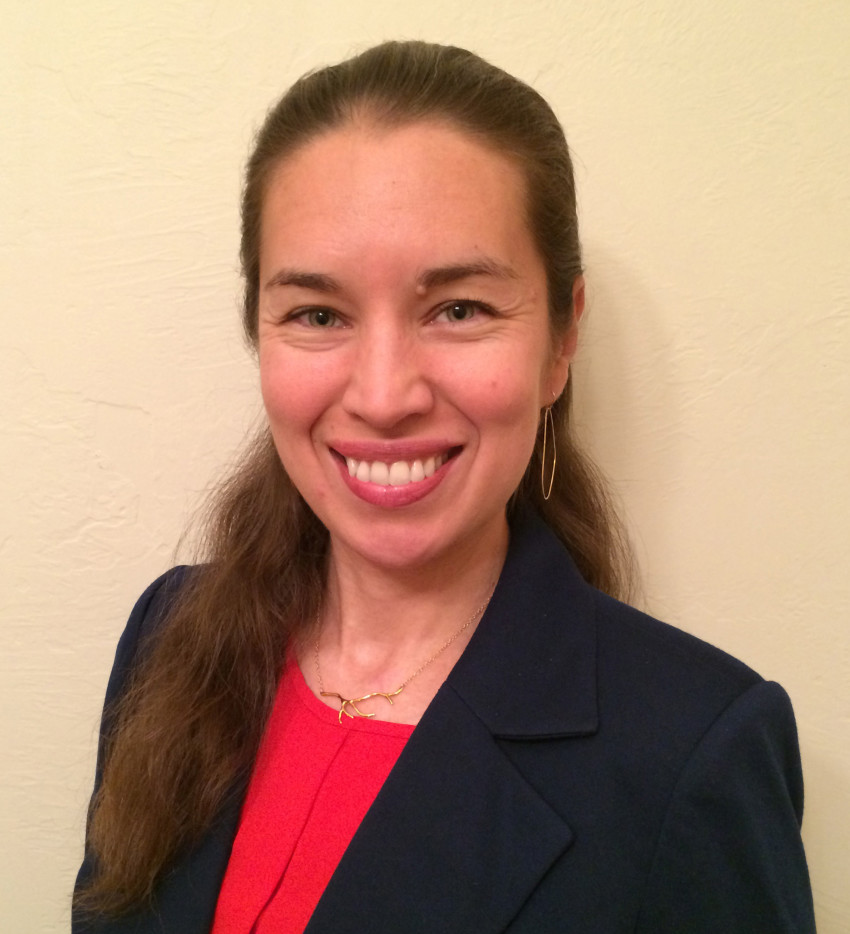
Name: Mia Lozada, MD
Title: General Internist, Internal Medicine Department at Gallup Indian Medical Center
Education: MD, University of Chicago; San Francisco Primary Care Track, Internal Medicine Residency, University of California – San Francisco
Grew Up In: Honolulu, HI
Interesting Fact: In her spare time, Lozada sings in her local jazz group and enjoys cooking, hiking and traveling.
Schwartz Center Activities: Schwartz Center Rounds® Physician Leader
“Thinking about things from my patient’s perspective reminds me how I really need to stop and remember that any challenge I’m sensing is extremely small compared to what my patients are going through. And that really helps to keep things in perspective.”
– Dr. Mia Lozada
The dinner table is a place where families come together to reflect on their day and be present in the moment with each other. For Mia Lozada, it was where her family talked about health and medicine, given her father’s profession as a surgeon. The language of science was very comfortable for her at an early age, and when she started college she explored pre-med and social work as potential career paths. She enjoyed science and helping people in their time of need, and ultimately decided to become a physician.
“What drew me to medicine were the interpersonal relationships and developing that over time with another person,” says Lozada. “These themes are very similar in social work and trying to problem solve and trouble shoot to make an individual’s life somehow a little bit better.”
Lozada has always been interested in caring for underprivileged and underserved patients who may face challenges in their ability to receive appropriate and adequate care for a variety of reasons. For instance, they may have lower incomes, are uninsured, have limited English proficiency, or live in remote areas.
At times, the goal in providing compassionate care to this patient population is simply to get patients to return. Many times she spends the first couple of visits with someone just listening, and not necessarily immediately prescribing medication, ordering a test or making a referral. She believes that the best time to introduce interventions that could benefit a patient’s longer term health is once they feel they are a partner in the decision-making process, and their trust has been gained.
“Earning a patient’s trust over a period of time is something that is so valuable and so powerful. Rather than walking into a room and expecting that the patient trusts you simply because you are a doctor, one should instead try to develop that relationship first, so that they can truly put their life in your hands, and so that they know it’s OK because you would want the best for them,” says Lozada.
This is what she finds most compelling and exciting about primary care: slowly developing a relationship with an individual patient and their family, and figuring out a solution to meet their needs in creative ways. With that comes challenges, which can be exhausting when caregivers see the same health issue over and over again, as many doctors go into medicine because they want to fix things and make people better. Caregivers at times want to provide solutions they don’t yet have in their arsenal, and that can be frustrating and lead to compassion fatigue, Lozada says.
To strike a balance between the increasing demands and challenges faced by caregivers, Lozada reminds herself that if there is ever an instance when she feels she doesn’t have enough time for a patient, that’s when she should strive even harder to be in the moment. If a patient has divulged something important, because they trust her, she feels that it is extremely important to be in that very powerful moment with them, rather than checking the clock and saying, “I’m sorry, I’m already behind, and our time is up.” To her, these are good reminders of what her priorities are, and why she wanted to become a doctor in the first place.
According to Lozada, the Schwartz Center Rounds® program at her hospital helps caregivers cope with the psycho-social demands of their work and preserve their compassion for one another and for patients. “It’s made me feel even closer to people at our hospital, where many of us do consider each other family, in a lot of ways,” says Lozada. “And I think it has helped that people who feel like family can talk to each other a little bit more and become a little bit closer, which has been great.”
And to Lozada, a sense of family is so important.
“I think providing compassionate care is caring for patients in the same way that we would for our own family members. It’s being mindful of what’s happening in a patient’s life, and being there to counsel them through those really tough times,” says Lozada. “It’s compassion that we all deserve in those moments, and other moments as well. But I think it’s treating patients as though they were our own.”
© 2025 The Schwartz Center. All Rights Reserved.